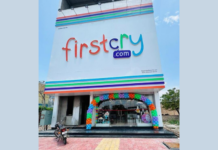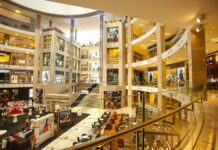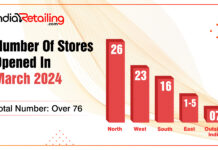Heads of brands that rely on quick deliveries to cater to their customer’s answers…
The dark model and fast inventory management system were adopted by the quick delivery platforms but it can be done organically only by knowing the pulse of the locality customers and organizing the inventory as per the market appetite on a daily basis. Quick delivery can be fulfilled by major two models:
- In this, the quick delivery company must rent a space, maintain an inventory and have a fast delivery system that can fulfill the expectation of the customers and robust technology at the back- end to manage the entire process seamlessly.
- The other model which is gaining attention nowadays is to enable quick commerce via local shops. In this model, local neighbourhood shops are on board with e-commerce platforms. In this model, local vendors can interact with their customers and understand their needs easily.
Majorly, local shops rely on walk-in customers, but by building a digital presence they can empower their business and also build a strong presence in the market which can increase their profits eventually. This way, they can easily maintain their inventory and can deliver the order in a limited time frame.
Building a direct inventory can also be a burden for the e-commerce platforms as in the retail dark stores major items will have a stock of perishable items. With these, they also have to bear the cost of proper storage, rentals, and replenish daily to maintain the quality and customer satisfaction of the customers.
Quick commerce by shops has their own kind of objections like the local shops mainly operate from 9 pm to 9 am so it’s become difficult for the platforms to deliver the late-night orders. But this still can be solvable as there are lots of shops in each locality which can operate on a timely basis.
“Currently, we don’t operate dark stores but in future, we are planning to expand in different cities. I totally believe that we will have a dark store rather than being dependent on a third-party supplier,” Mohit Rathod, Co-founder, Truly Desi said.
According to Harshvardhan S, Co-founder, and CEO, Lil Goodness, the decision to opt for dark stores depends on the category. “If we’re selling frozen/chilled desserts we will probably build our own supply chain which will enable us for instant delivery while optimizing the fulfillment costs as it is critical for customer experience. Considering the product category that we currently operate in, it would be better to ride on an existing platform rather than building our own supply chain.”
Explaining her company’s strategy, Ravina Jain, founder, and CEO, The Skin Story & The Beard Story said, “We’re still researching and exploring ways to expand our network and trying to become a part of the fast delivery network. But in our case, the delivery time would be around 2 hours rather than 10-20 mins as the quick delivery service can affect our product quality and the risk of drivers and it will also depend on the views of our target demographic.”
Clearly, there is no right answer to the question are dark stores the right model for Q-Commerce. Brands are experimenting with different ideas—while some are looking to join hands with third-party suppliers others want to build their own network which can fulfill customers’ needs.
First published as part of the article ‘Q-Commerce: Can quick deliveries win customers for life?’ in the September – October 2022 issue of Phygital magazine.







